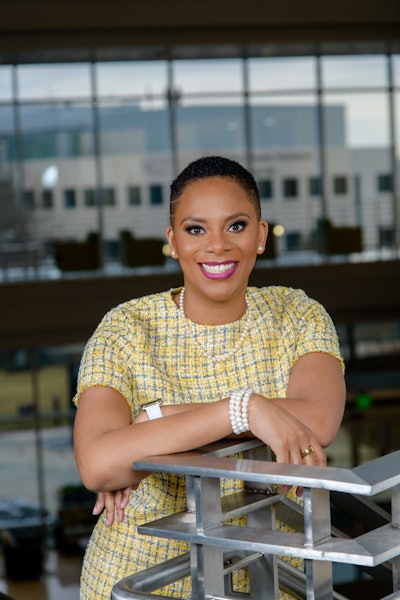Howard Community College President Dr. Daria J. Willis has announced plans to reopen the college’s on-campus Children’s Learning Center in partnership with the Community Action Council of Howard County. Dr. Daria J. Willis
Dr. Daria J. Willis
The center’s reopening serves as an essential resource in reducing childcare costs, creating much-needed Early Head Start programming for infants and toddlers, and encouraging degree completion among student parents at the college of more than 22,000 students — 24% of which claim child dependents.
“We could not be more grateful for the partnership of (Community Action Council President) Tracy Broccolino and the CAC, County Executive Calvin Ball, and so many other heroes and heroines who made this day possible,” said Willis. “Young parents and their children will once again have a place on our campus to more comfortably work, grow, and dream towards their roles as leaders of our community and our world.”
Broccolino said the partnership to reopen the center enables the college and the council to positively impact families and children for generations to come.
“We know that education makes a huge difference in enabling social and economic mobility for the entire family, and exceptional early childhood education puts children on a trajectory to lifelong success,” said Boccolino. “CAC is proud of our longstanding relationship with HCC and the opportunity to partner in providing expanded whole-family support for HCC’s students and our community.”
The facility closed in 2020 during the COVID-19 pandemic and associated budget reduction efforts. The college was awarded a $1 million grant in 2023 from the U.S. Department of Education to support re-opening its campus childcare center.
The grant, part of the federal Childcare Access Means Parents in School Grant Program, brings the college closer to re-establishing a critical support service for hundreds of student parents pursuing higher education in Howard County.
“For scholar-parents, childcare is perhaps one of the most critical determinants of whether they are able to persist in school,” said Dr. Ball. “I’d like to applaud Dr. Willis and her team for recognizing this barrier and taking the necessary steps to ensure their scholar-parents have the support to thrive.”















